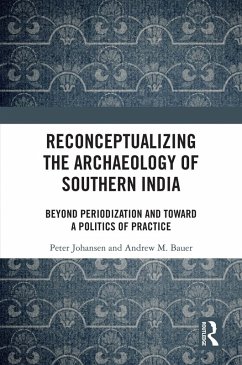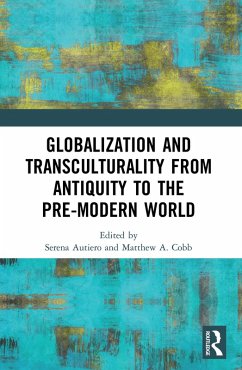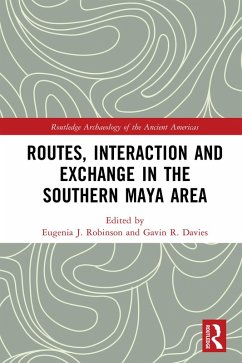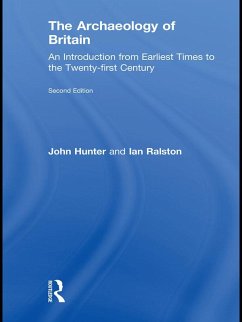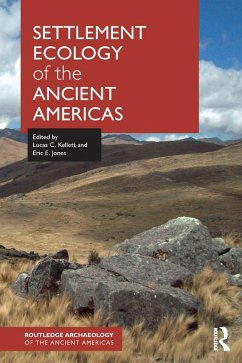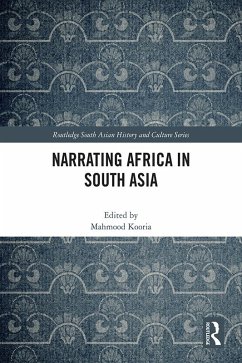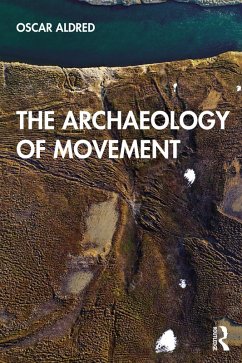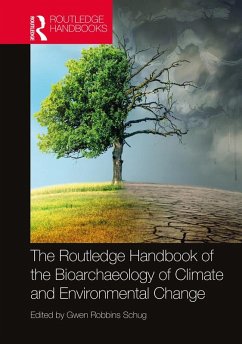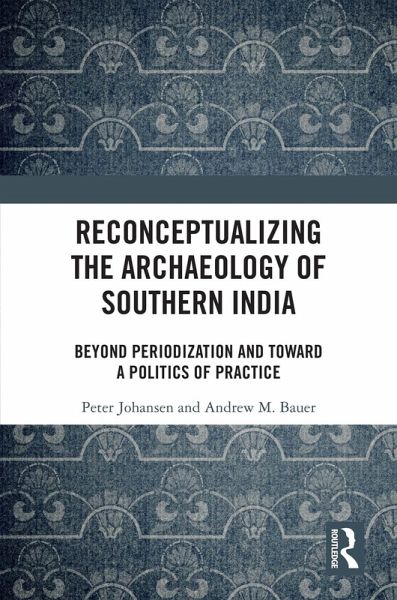
Reconceptualizing the Archaeology of Southern India (eBook, ePUB)
Beyond Periodization and Toward a Politics of Practice

PAYBACK Punkte
21 °P sammeln!
This book presents a paradigm shift in the long-term study of South India's deep history. It refuses the disciplinary constraints of history and prehistory and interrogates the archaeological and textual records of the Deccan to disrupt its conventional archaeological periodizations, which have tended to reify and dehistoricize social and cultural differences.This book draws on over 20 years of original archaeological research from the southern Deccan region of India to critically reappraise the historiography that has framed its deep history. It fundamentally questions conventional archaeolog...
This book presents a paradigm shift in the long-term study of South India's deep history. It refuses the disciplinary constraints of history and prehistory and interrogates the archaeological and textual records of the Deccan to disrupt its conventional archaeological periodizations, which have tended to reify and dehistoricize social and cultural differences.
This book draws on over 20 years of original archaeological research from the southern Deccan region of India to critically reappraise the historiography that has framed its deep history. It fundamentally questions conventional archaeological paradigms, rooted in early colonial scholarship, which have structured interpretations of deep time with curiously ahistorical narratives of the past. This volume offers a more nuanced assessment of historical changes across a diversity of cultural, social, and political practices through the novel application of theoretical framings to archaeological and historical data, including political ecology, techno-politics, resource materialities, and landscape production.
This book will interest an interdisciplinary audience of graduate and undergraduate students and professional academics, primarily in the fields of archaeology, history, and South Asian studies. Its theoretical interventions will also be of interest to those invested in the anthropology and the archaeology of politics, chronology, historicity, historiography, materiality and landscapes.
This book draws on over 20 years of original archaeological research from the southern Deccan region of India to critically reappraise the historiography that has framed its deep history. It fundamentally questions conventional archaeological paradigms, rooted in early colonial scholarship, which have structured interpretations of deep time with curiously ahistorical narratives of the past. This volume offers a more nuanced assessment of historical changes across a diversity of cultural, social, and political practices through the novel application of theoretical framings to archaeological and historical data, including political ecology, techno-politics, resource materialities, and landscape production.
This book will interest an interdisciplinary audience of graduate and undergraduate students and professional academics, primarily in the fields of archaeology, history, and South Asian studies. Its theoretical interventions will also be of interest to those invested in the anthropology and the archaeology of politics, chronology, historicity, historiography, materiality and landscapes.
Dieser Download kann aus rechtlichen Gründen nur mit Rechnungsadresse in A, B, BG, CY, CZ, D, DK, EW, E, FIN, F, GR, HR, H, IRL, I, LT, L, LR, M, NL, PL, P, R, S, SLO, SK ausgeliefert werden.




